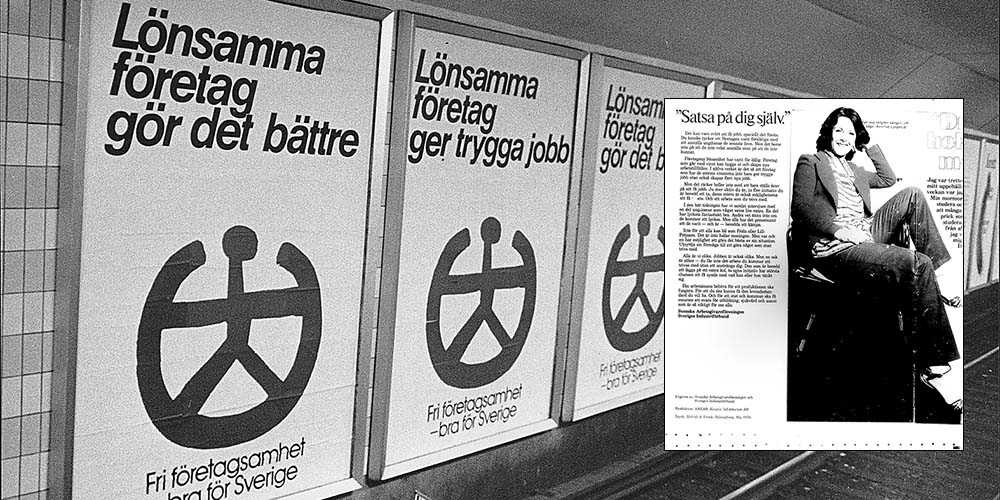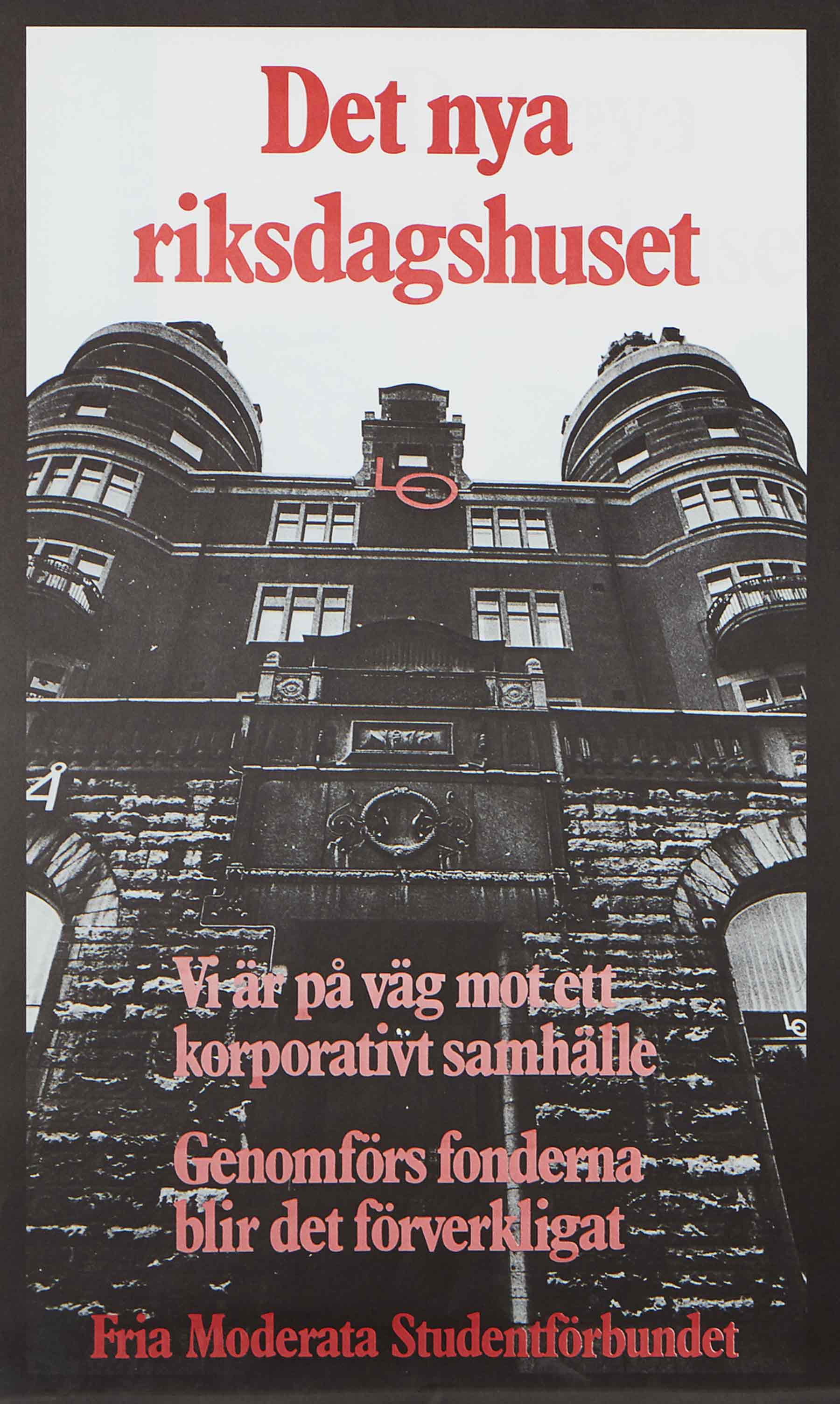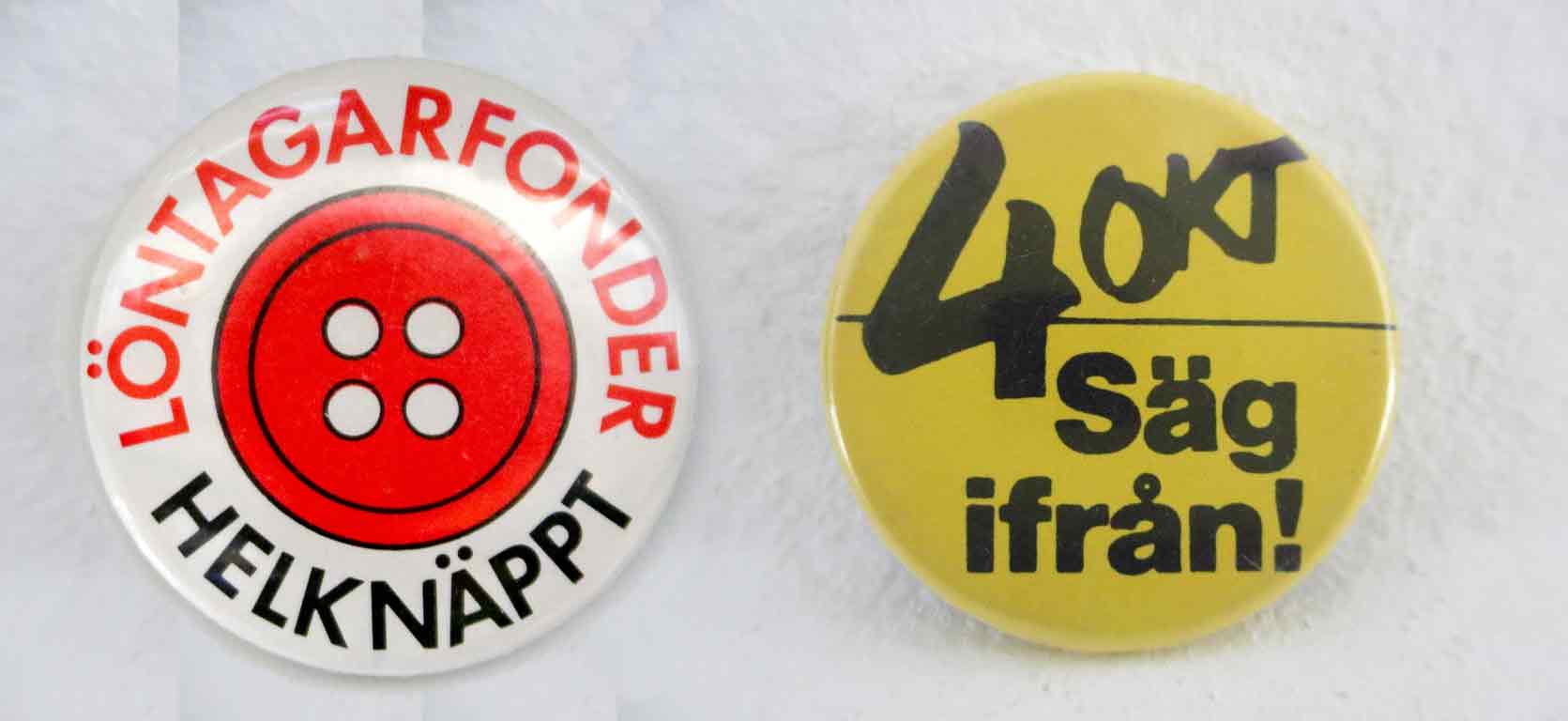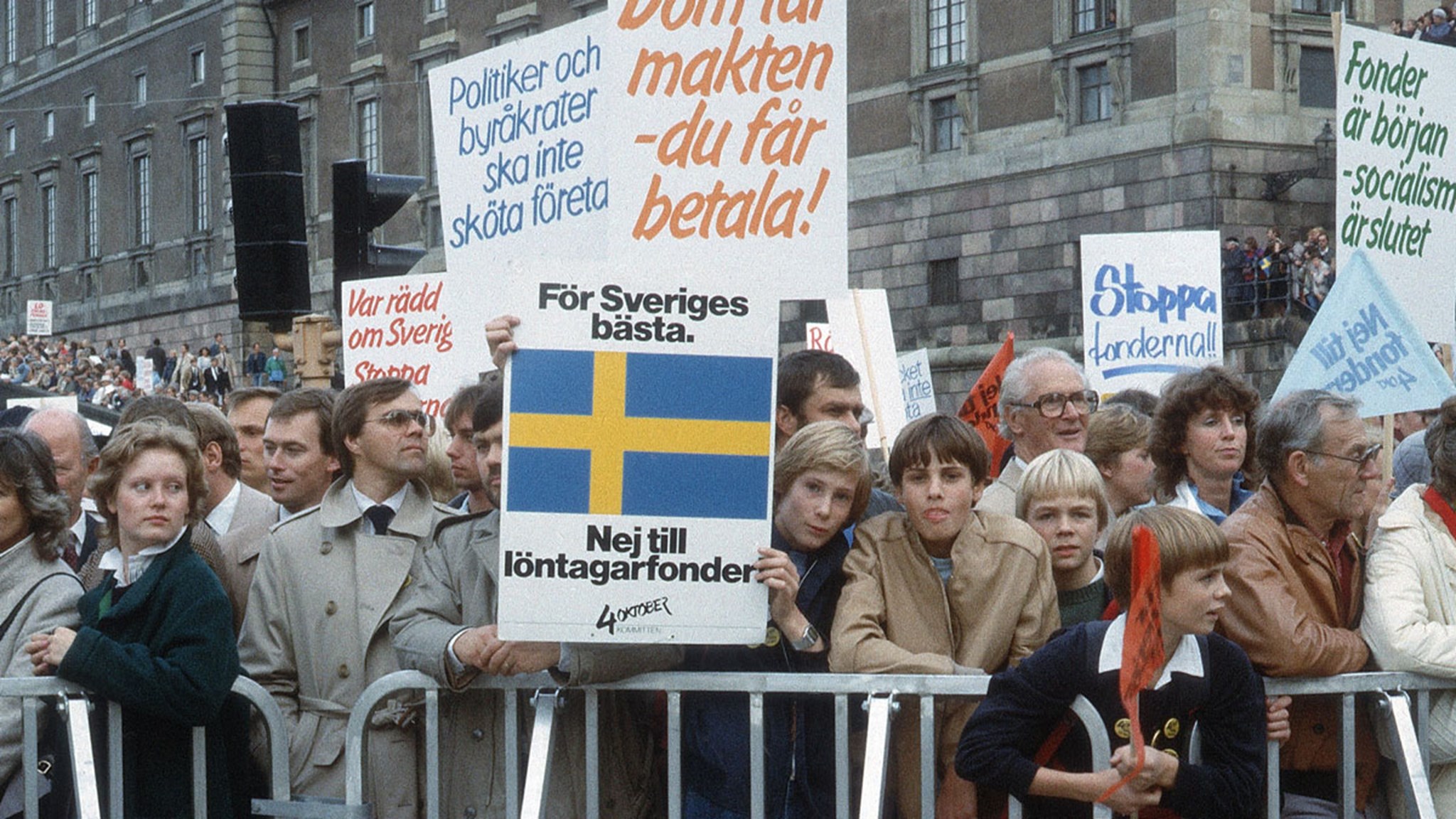It's soon 36 years since the first massive demonstration against "Löntagarfonder" took place the very same day as the Swedish Parliament's opening, and went from Humlegården to the Chancellor's House in the Old Town of Stockholm where a letter was delivered requesting that the government stop the "employee funds."
In a lengthy article over at the Jacobin, Kjell Östberg explains the many factors and political waves that eventually led to this, and how close Sweden almost was heading to pure socialism: Sweden’s extraordinary wave of reforms in the 1970s, an era of explosive radicalism, reveal the achievements — and the limits — of social democracy. He will show you how Sweden eventually came up with the idea of wage-earner funds. The idea was that every year, a portion of the profits of Sweden’s large and medium-sized companies, as shares, was to be transferred to funds controlled by the unions. This would be called "Löntagarfonder."
As your friendly resident adnerd, however, I just wanted to share the ads that helped get people involved. Demonstrations and grassroots engagement doesn't just spring from nowhere. Political ads are still advertising. Today we may have super PACs and Falun Gong buying tonnes of Facebook ads, while young climate activists are PRed into the press daily and onto covers of men's magazines on occasion. Back then the politically active youth made buttons, wrote pamphlets and printed up spot colour posters while the business leaders wrote opinion pieces and organized rallies.

SAF, Swedish Employers' Association, launched two big media campaigns in 1979. "Bet on yourself" (Satsa på dig själv) and "free enterprise is good for Sweden" (Fri företagsamhet - bra för Sverige), with headlines like "Profitable companies give job security" and "Profitable companies do it better." These billboards were in the subway, and full-page ads were in business magazines.
Employee wage earners’ funds were an idea launched by LO, the Swedish Association of Trade Unions, in the early 1970s, which meant that ownership in the business sector would be transferred to the trade unions with the aim of reducing the owners' power. A proposal was prepared by LO economist Rudolf Meidner and adopted by the LO Congress in 1976, which meant that 20 percent of a company's profit each year would be converted into shares and accrued to a union-managed fund.
A growing fear of these funds actually led family-owned and entrepreneurial companies and their founders to pack up and leave Sweden, including some of the most Swedish brand names that you know today like IKEA (Ingvar Kamprand), Tetra Pak (The Rausing family) and H&M (The Persson family). A pamphlet named "Free enterprise or fund socialism" ("Fritt näringsliv eller fondsocialism" ) penned by SAF official and economist Danne Nordling in 1978 was the start of a more organized resistance. Due to this, the Social Democrats avoided the topic completely in the 1982 election campaign.

While the Social Democrats may have wanted to avoid the issue during their election campaign, their conservative opposition did not. The Moderates youth party created posters attacking the idea of the wage funds specifically.

"The new parliament house" reads the red headline on a photograph of the Swedish Association of Trade Unions headquarters. "We are heading towards a corporative society. If the funds are implemented, it will be realized "
By using only spot colour, and that somewhat evil-looking image of the LO-building, the youth organisation from the Moderates communicate an urgency as well as an alternative future that looks rather grim.

"Tomorrow he could be your boss" reads this poster, with the sender listed as "free Moderate student group"
The Social Democrats won the 1982 elections, and people thought they may not implement the idea of wage funds. (See one of their campaign ads from 1985, directed by Roy Andersen, here)
When, on June 30, 1983, the government presented a memorandum of ministry with a ready proposal, the public reaction was fierce. At the beginning of July, Småland's entrepreneurs, led by Gunnar Randholm, CEO and owner of Eldon AB in Nässjö, wrote letters to business organizations and suggested that the country's entrepreneurs, through a large manifestation, show their opposition to collective wage funds.

Gunnar Nilsson, the chairman of the Swedish Trade Union Confederation, is depicted shaking hands with himself and the headline "In wage fund-Sweden, the unions rule" in another poster created by the youth wing of the Moderate party in 1982.

The largest demonstration against the employee wage funds was on October 4, 1983.
A large proportion of the protesters travelled to Stockholm from all over the country in a gigantic transport apparatus organized by the business organizations. They had arrived in Stockholm in 60 extra rail cars, 200 buses, a number of charter planes and a large number of private cars.
This massive demonstration with over 75,000 people according to media reports and over 100,000 according to the business organisations, failed to stop the introduction of the employee funds, even though the original proposal was somewhat watered down.
The bill on employee funds was adopted by the Swedish Parliament on December 21, 1983 and introduced by the Palme II Government in 1984. It was abolished by the Bildt (from the Moderate party) government after the 1991 bourgeois election victory.

These days opinion lobbying may be happening in every corner on the internet, with leading politicians mouthing off on Twitter, and obscure organisations buying millions of dollars worth of ads on Facebook.
Discussion forums, Twitter spats, Facebook groups, Reddit subs, and even Discord servers are now the places where the grassroots are rallied. The places where we speak, and the symbols have changed, but so has the reach of political ideas. We've replaced our buttons with frog, paperclip or watergun emojis in our Twitter handles, and our printed posters with sharable memes. Pepe, that frog, shows up in Hong Kong among the protestors. Meanwhile, Bernie Sanders talks up Sweden as a good example of socialism in the United States.
In the end, changing peoples minds requires one thing: a good idea, well communicated. That's advertising.
Thanks for the history lesson.
- reply
Permalink